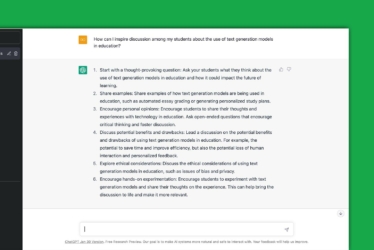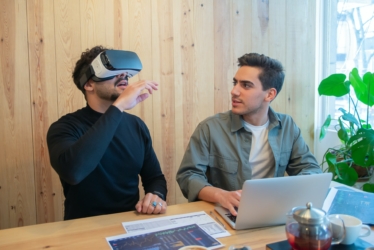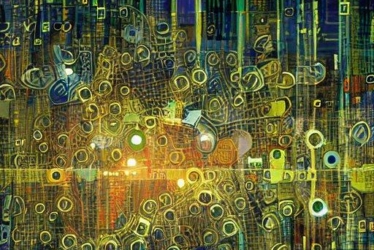Insights
Learning Experience Design: A New Kind of Learning
On March 21 & 22 2019 from Colombia to Australia, instructional designers, graphic designers, humanitarian innovators and web designers came to HvA’s Digital Society School in Amsterdam to join a collective Learning Experience.
Ramon Puras (Faculty of Education Dean, Amsterdam University of Applied Sciences) set the tone by opening the conference with a call to action by urging the participants to push the boundaries of what is possible in education and learning. Niels Floor (Shapers), the keynote speaker, noted that learning throughout all stages in life should be connected to personal development. He stressed that learning isn’t always fun, sometimes the most valuable learning experiences come from failing and overcoming frustration.
Learning isn’t always fun, sometimes the most valuable learning experiences come from failing and overcoming frustration. – Niels Floor
The Centre for Innovation (CFI) strives to push boundaries and make education more personal in everything we co-create with Leiden University and our partners. Our goal is to accelerate change in the world of learning, and we contributed to the conference by sharing our Design Thinking methodology. We also organised a “Survive the Future” game, in which the participants experienced the effects of their decisions on intangible themes like climate change and cyber warfare, for some the only way to survive was to upload their brain to space. Stay tuned for a follow up insight on our design and implementation of the game!
There were many takeaways from the conference and we would like to share three of our most important insights with you.
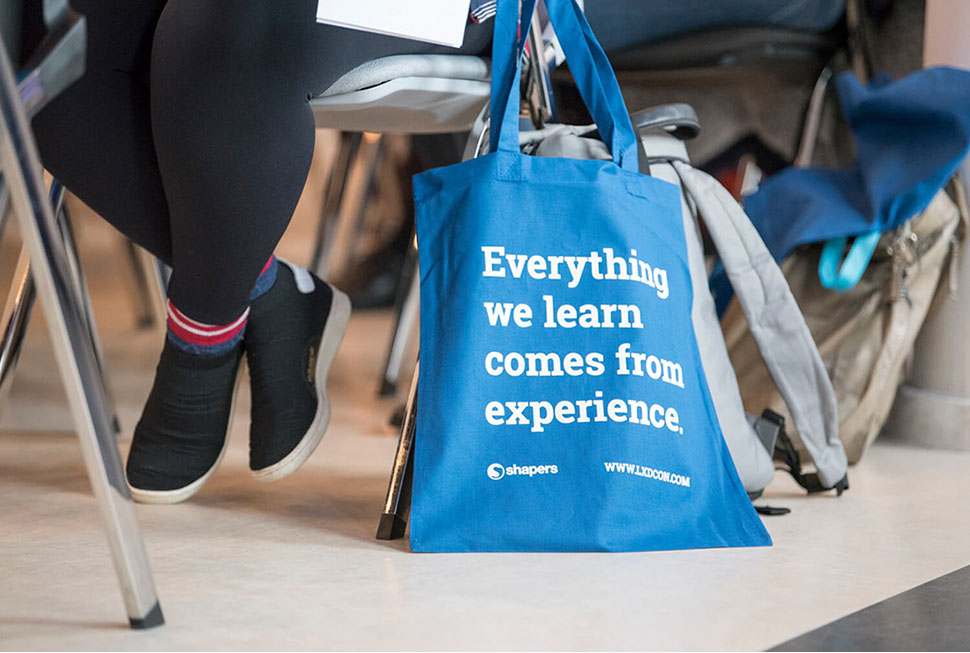 Photographer: Nadine van den Berg
Photographer: Nadine van den BergInsight 1: Many small lessons can add up to a lot of learning
A bicycle with one wheel, a masterpiece without paint or a cappuccino without milk: things that seem to be incomplete make us uncomfortable. But why? People love it when things are complete and tend to focus on the bigger picture, but in Learning Experience Design (LXD) this can lead to problems. Most of the time it is impossible to cover everything you want to share in one design.
Luckily Lernhacks.de demonstrated how taking small steps within an organisation can lead to big impact. They explained that by implementing ‘Lernhacks’, strong learning culture can be fostered throughout an organisation. Using this tool means that learning is transformed from a top-down learning path developed by an expert teacher to a bottom-up, individualized learning journey supported by exercises that can be done in 5 minutes a day. The learnhacks help learners to determine: What do I need to learn? How do I do that? Am I progressing? Would I do it the same next time or what would I do differently? Thomas Tillman urged management to take an active role in the conversation about learning and being open about what managers want and need to learn. Curious? The Lernhacks are available under Creative Commons licence, so you can start using them straight away.
The next time we catch ourselves working towards an overly complex and large design because we want to include every possible subject , we will remind ourselves to take a look at the core of what we want to share. By making our learning design smaller we create possibilities for everyday micro-learning andany small lessons lead to a lot of learning. If you look closely at what you have and where you want to go, you will realise that things are only as incomplete as you make them. A unicycle, a sketch and a black coffee are complete enough!
Insight 2: Making connections can help you thrive & grow
Learning develops new connections in our brain. Besides connections that are directly related to learning, there are plenty of other connections that indirectly facilitate learning.
We learned from Diederik Veerman (Museon) that moving from passive to active learning spaces helped people to feel more connected in a museum environment. A great example of this is the soon to open exhibition on Caribbean Ties, a project in collaboration with the Faculty of Archaeology at Leiden University and twelve other museums across the Caribbean. The theme of the exhibition is “connecting people then and now.” With opening events all over the world people are able to share stories, music and food. By connecting different parts of society to each other, Museon is moving away from individual experiences and towards a connected community. A wonderful way to stimulate learning!
Another example of connection is how Leiden University’s IHL Clinics connected students and international humanitarian organisations to facilitate learning about International Humanitarian Law (IHL) in practice. The combination of eager students who need practical opportunities and organisations with a lot of work but little manpower proved to be a fruitful connection. The student reports are relevant to the work of the organisations and students report that the clinic “…takes your understanding of the workings of IHL to another level”. Beyond the formal skills learned in the projects, the students are also introduced to organisations that could employ them when they graduate.
In short, we should not only be thinking about what students should learn, but also consider who they can learn that from. Sometimes a spontaneous conversation with someone on the train can provide more learning than a micro-learning gamified VR Experience.
Insight 3: Everything we learn comes from experience: we need to redefine learning!
What is an experience? We classify a lot of things in our lives as experiences, yet we only label a few things as learning. If we all agree learning comes from experiences, this seems like an inaccurate categorisation. This third lesson might be the most important one: we need to redefine learning!
Arlette Baartmans (Thomas & Charles) had a wonderful request for the revaluation of informal learning: How come we think dropouts stop learning? Doesn’t learning take place everywhere in life? If that is true, how come life experiences are not part of your CV? During this event we were reminded that most learning doesn’t take place when listening or reading in a comfortable chair. Learning happens while working on a design challenge in a big group, improvising your workshop to fit into half the allotted time or playing an 80 player game in a cramped room under time pressure. Maybe it’s not what you’re used tobut it is a learning experience!
As Niels Floor (Shapers) said in his keynote “whenever you learn, your power grows and therefore your responsibility grows.” As learning designers it is time to take that responsibility and start pushing the boundaries of education.
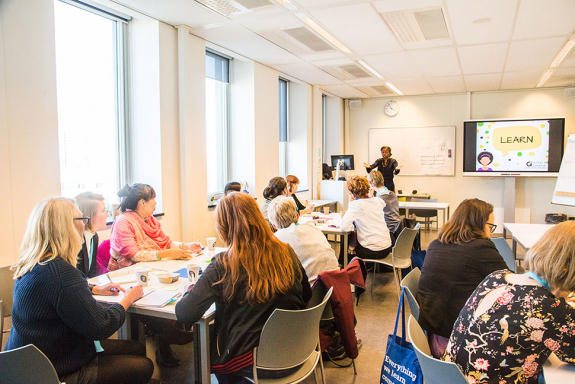
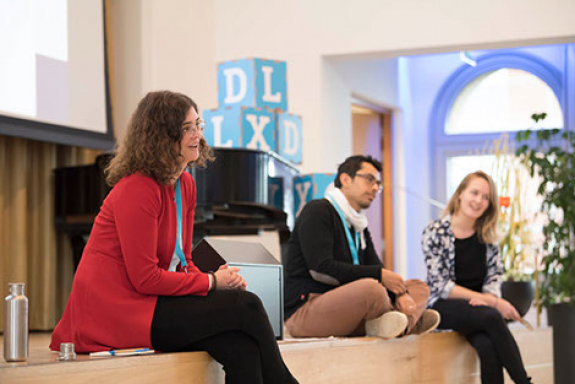
Join the CFI in redefining education!
We will continue the conversation about the future of education on the 25th June when we Re-imagine education and explore what augmented reality can do for learning experiences.


Get in touch with the authorS

Daniek Bosch
Learning Experience Design
d.bosch@sea.leidenuniv.nl
Monique Snijder
Learning Experience Designer
m.a.snijder@sea.leidenuniv.nl


